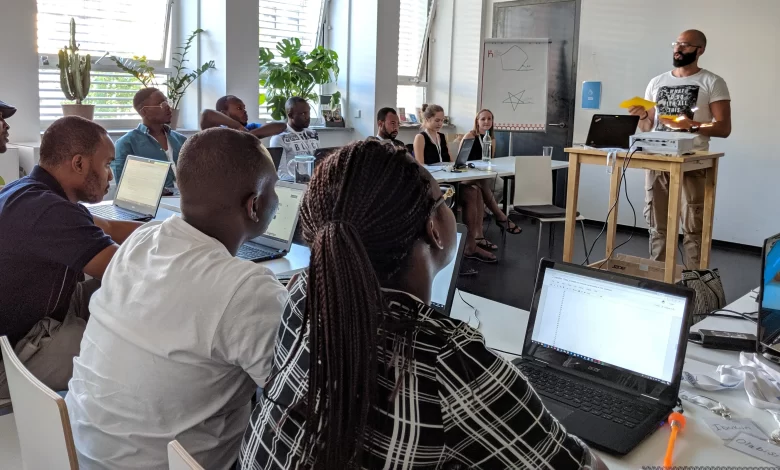Unlocking Opportunities: Remote Job Options for Africa Migrants

In recent years, the landscape of work has undergone a remarkable transformation, with remote employment emerging as a viable option for individuals worldwide. This shift is particularly significant for Africa migrants, who often face unique challenges in accessing traditional job markets. Remote work offers a promising avenue for Africa migrants to leverage their skills, bridge geographical barriers, and access global employment opportunities. In this article, we explore the growing trend of remote work for Africa migrants, its benefits, challenges, and the potential it holds for reshaping the continent’s economic landscape.
The Rise of Remote Work
Remote work, once considered a niche arrangement, has gained widespread acceptance, accelerated by technological advancements and changing attitudes toward work-life balance. This shift has been further propelled by the global COVID-19 pandemic, which forced many businesses to adopt remote work models rapidly. As a result, employers worldwide have become more open to hiring talent regardless of geographical location, creating opportunities for Africa migrants seeking employment.
Advantages for Africa Migrants
Remote work offers several advantages specifically beneficial to Africa migrants:
- Access to Global Job Market: Remote work eliminates geographical barriers, allowing Africa migrants to access job opportunities worldwide without the need to relocate.
- Flexibility: Many remote positions offer flexible schedules, accommodating the diverse needs of Africa migrants, including those balancing work with familial or educational commitments.
- Cost Savings: Remote work often eliminates the need for expensive relocations or commuting, reducing financial barriers for Africa migrants seeking employment.
- Skill Enhancement: Working in remote positions exposes Africa migrants to diverse cultures, technologies, and work practices, fostering skill development and enhancing global competitiveness.
- Entrepreneurial Opportunities: Remote work can empower Africa migrants to pursue entrepreneurial ventures, leveraging their unique experiences and expertise to create innovative solutions.
Challenges and Solutions
While remote work presents numerous opportunities, Africa migrants may encounter challenges such as:
- Access to Technology: Limited access to reliable internet connectivity and necessary technological infrastructure can hinder Africa migrants’ participation in remote work. However, initiatives aimed at improving digital infrastructure, such as increased internet connectivity and digital literacy programs, can help address this challenge.
- Cultural and Language Barriers: Africa migrants may face cultural and language barriers when working with international teams. Encouraging cultural sensitivity training and providing language support can facilitate effective communication and collaboration.
- Payment and Financial Transactions: Africa migrants may encounter difficulties with international payment methods and financial transactions. Utilizing digital payment platforms and offering guidance on financial management can mitigate these challenges.
- Work-Life Balance: Remote work can blur the boundaries between work and personal life, potentially leading to burnout. Promoting work-life balance through clear expectations, flexible scheduling, and mental health support initiatives is essential.
The Future Outlook
The future of remote work for Africa migrants holds significant promise. As technology continues to advance and remote work becomes more entrenched in global work cultures, opportunities for Africa migrants will continue to expand. Initiatives aimed at addressing infrastructure gaps, fostering skills development, and promoting inclusive work environments are crucial for maximizing the potential of remote work for Africa migrants.
Moreover, remote work can contribute to the socioeconomic development of African countries by retaining talent, fostering entrepreneurship, and promoting knowledge transfer. Governments, businesses, and international organizations must collaborate to create enabling environments that support the growth of remote work opportunities for Africa migrants.
Conclusion
Remote work represents a transformative opportunity for Africa migrants, offering access to global employment markets, flexibility, and skill enhancement. While challenges exist, proactive measures can overcome these barriers and unlock the full potential of remote work for Africa migrants. By embracing remote work, Africa migrants can contribute to their own economic empowerment and the overall development of the continent.




